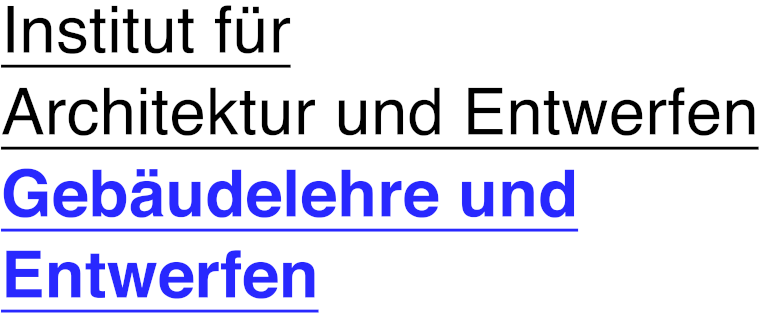Ruins, Gardens and Time – Carles Enrich

Ruins, Gardens and Time
Carles Enrich
Donnerstag, 27.11.2025, 18:00, HS 17 Friedrich Hartmann, TU Wien
Moderation: Prof. Tina Gregoric & Leonhard Panzenböck
Carles Enrich is an architect and holds a Master’s in Theory and Practice of Architectural Projects. He is a runs a Design Studio at ETSAB since 2015 and has been Coordinator of the Master in Architecture at La Salle School of Architecture since 2022. He has been a visiting professor at TU Wien, UNAV Pamplona and TEC Monterrey, and has lectured at international universities and congress in Santiago de Chile, Guadalajara, Sao Paolo, Innsbruck, Piran, Sarajevo, and Porto. In 2013, he founded Carles Enrich Studio, working across architecture, urbanism, and landscape with a multiscalar and context-driven approach. His work has been internationally recognized with the AR Emerging Award (2021), Re-FAD Award (2023), FAD Opinion Award (2016, 2021, 2023), and ENOR Young Architect Award (2020), as well as nominations for the EU Mies Award (2017, 2019, 2022, 2025), Swiss Award (2024), DETAIL Award (2024) and BRICK Awards (2025). He has participated in three Venice Biennales, including Unfinished (2016), and exhibited in the Cité d’Architecture et du Patrimoine (Paris, 2023).
Ruins, Gardens and Time
In a time of climate emergency and social uncertainty, architecture is asked to act with both ecological sensitivity and historical awareness to become an act of continuity, aable of prolonging the life of matter, energy and time. Ruins, Gardens and Time explores this condition through an eco-historic lens that integrates ecological intelligence with cultural memory, proposing a design practice based in care, reuse, and coexistence rather than expansion or replacement. The eco-historic approach conceives architecture, urbanism, and landscape as living systems shaped by time and transforms history into an active resource. Instead of separating preservation from innovation, it seeks to reuse and reinterpret the existing, allowing the city to evolve as a continuous ecosystem of materials, memories, and relations. Within this framework, three principles structure the discussion: Re-Circular, Microclimatisms, and Catalysts of Continuity. Re-Circular defines architecture as a circular process in which materials, structures and energy are continuously reused, repaired, and reassembled. Existing buildings become dynamic repositories of resources and memory. Microclimatisms refers to the ability of architecture to improve local climates and new forms of ecological atmospheres through natural processes (light, air, water, and vegetation) to produce new forms of coexistence between the built and the living. Catalysts of Continuity introduces a temporal ethic: an awareness that architecture must remain open to adaptation, capable of connecting the past it inherits with the futures it anticipates. Through this lens, ruins are fertile grounds for regeneration; time becomes a design material, revealing the life of buildings beyond their original function; and gardens emerge as both metaphor and method — spaces of care, biodiversity, and cultural imagination. By reading the city as a layered garden of histories and ecologies, the lecture argues for an architecture that learns from time and embraces change as a form of progress. An architecture as an act of continuity, connecting past and future through the responsible use of what already exists, gardening an ecological culture able to grow through time, decay, and renewal.
Weitere Infos:
Der Vortrag ist Teil der Vortragsreihe „Gebäudelehre und Kulturelles Handeln“:
MI 19.11. Elias Molitschnig (Wien) – Wie wollen wir leben?
DI 25.11. Franziska Wittmann (Zürich) – Phänomenologie der Architektur
DO 27.11. Carles Enrich (Barcelona) – Ruins, Gardens and Time







